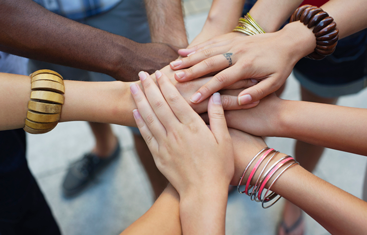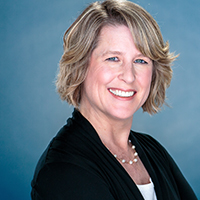The Era of Corporate Social Responsibility is Ending: Why That’s a Good Thing

People who do what I do for a living spend their lives championing what we call “corporate social responsibility.” Traditionally, Corporate Social Responsibility has been for the “big guys”—the Fortune 500 companies who have the capacity to invest in staff and effort. But there are a lot of companies out there that aren’t big. Does that mean doing good and contributing to social good isn’t important to them? Of course not.
I believe that the focus on “corporate” is actually limiting.
More than 70% of all people, who work for business in America, work for small to mid-sized businesses. They work for enterprises that are anything but corporate. This might seem picky, but when you have a professional area that’s all about doing good work and being a good citizen that, at its very heart, is focused on “corporate”, you’re leaving a lot of people without a seat at the table. You’re putting up barriers, in the very language you use, that says “this isn’t for you.” That’s kind of ironic, isn’t it? An effort designed to drive important socially good work that’s set up to be exclusive, not inclusive.
It’s time to shift to HUMAN Social Responsibility.
I have a fundamental belief in my life that “Good is for Everyone.” It is for my 16-year-old son and my 80-year-old father. It is for cities, small businesses, nonprofits, government, and every other kind of commercial or social concern. It is for all of us. And we need to stop thinking that only certain kinds of organizations are capable of being wired for good.
Human Social Responsibility means that organizations of all sizes, as conveners of people, will take their lead from their employees and their individual human social contracts.
Regardless of what structure we’re talking about, people are at the center of every organization, no matter why it exists. We, as humans, bring life to the vision and purpose of any organization. We provide the oxygen and the wits to make everything happen.
People, today, bring their whole selves to work. When I walk into the office every morning, I do so as a complete person; as a daughter who recently lost a mother, as a mother sending her son off to college, as a member of a community struggling to deal with a racial hate crime, as a board member really focused on governance, and as a professional.
My colleagues are the same—we each sign our own human contract with the world. It’s written in indelible ink, interwoven into our daily DNA. We bring who we are and what we stand for into our jobs. This shift—this rising up of our collective daily DNA is ageless—and it’s for everyone.
Your role in the shift from “Corporate” to “Human”:
It’s all about a balancing act between your people and your community.
Take your cue from your people.
I’m not saying that you have to forget your company’s purpose or vision, but don’t make the mistake of ignoring the vision of your people. Their social good story is your social good story. Have the courage to go on a journey together.
- Know what your people care about
- Put your people at the center of your giving
- Empower your people as agents of good
Take your cue from your community.
The more you know about your people and your community, the more you can align your goals. You’ll know you are doing it right when people are coming to you with ideas and leading from where they stand. That’s the end game—when you embrace human instead of corporate, your brand actually gains in stature.
- Know what your community cares about
- Put your community at the center
- Partner on doing good
We each have a choice—a choice about how we want to walk through life and how we want to lead the organizations we’re involved with. If good really is for everyone, then we have to keep the human component central. I want you to go beyond just understanding this. I want you to join me, because good good is for everyone.
